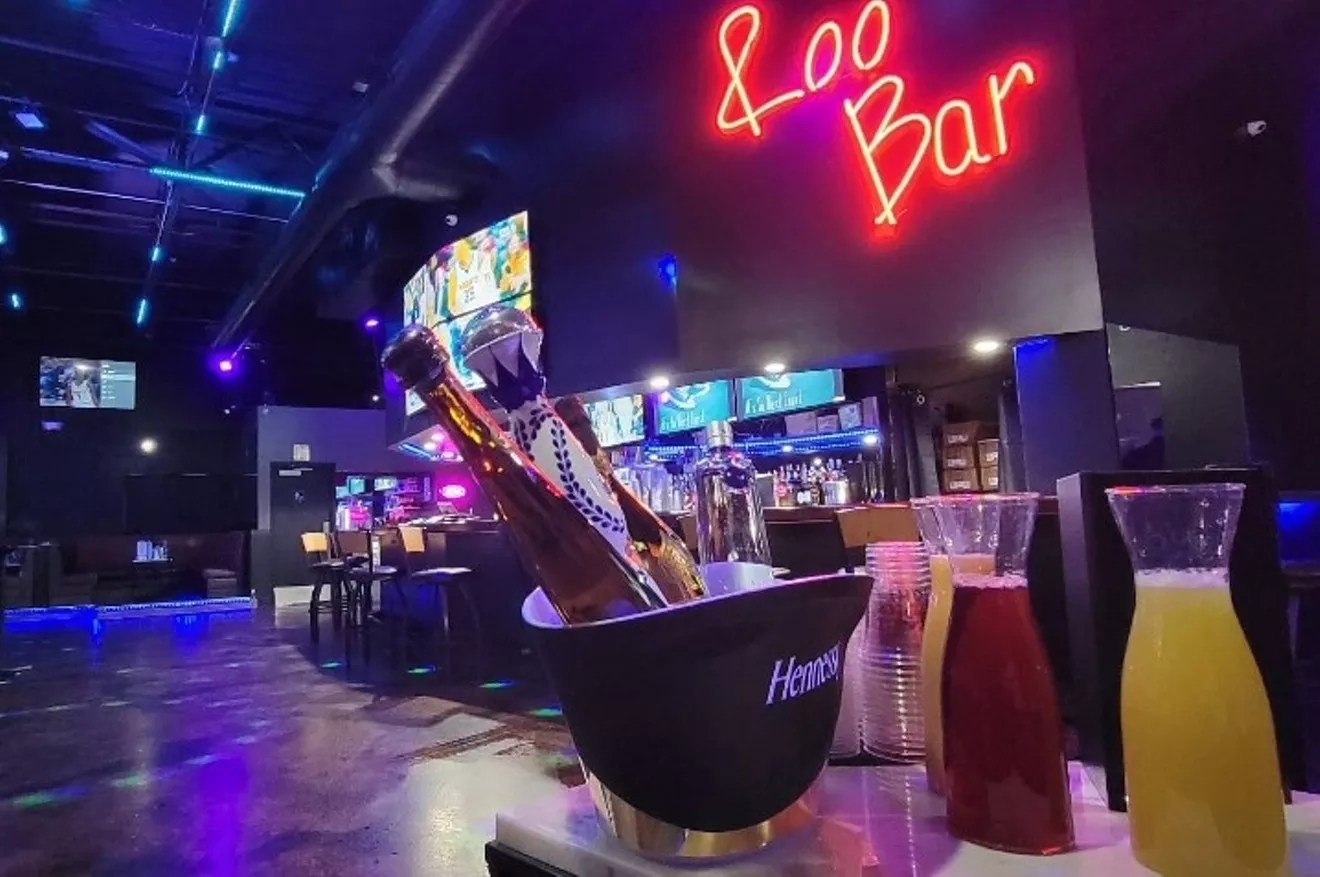
Courtesy of Jugurta Tighrine

Audio By Carbonatix
Denver has taken the rare step of issuing an order to revoke the liquor and cabaret licenses currently held by Roo-Bar Lounge, a hip-hop club at 3480 Park Avenue West that’s been hopping with issues.
Since 2019, the city has issued such an order for only four other bars: Sancho’s Broken Arrow, Viceroy Lounge, Cabin Tap House and Beta Nightclub. Roo-Bar Lounge joined this hall-of-shame list on March 9.
According to an order of noncompliance just issued by Erica Rogers, director of policy for the Denver Department of Excise & Licenses, Roo-Bar violated the terms of its settlement agreement with the city approved on February 3. “Accordingly, the Deputy Director hereby Orders that Respondent’s Dance Cabaret License and Hotel and Restaurant License be REVOKED,” the order states.
Roo-Bar must close within ten days, the order notes, though the bar could avoid that action by requesting a hearing to adjudicate whether it had truly violated the settlement agreement. Neither Roo-Bar nor its lawyer responded to a request for comment.
This could be the final chapter of a saga that began in the fall of 2022, when the Denver City Attorney’s Office attempted to get Roo-Bar declared a public nuisance and the bar was closed temporarily. In October, a judge lifted the city’s temporary restraining order, allowing Roo-Bar to continue operating – but problems persisted.
In November, Excise & Licenses sent registered Roo-Bar owners Jugurta Tighrine and Danny Safieddine an order to show cause, notifying them that they would need to respond to allegations that the venue allowed disorderly conduct and had unlicensed security guards on the scene. That order listed multiple violations connected to fights at the lounge and the poor management of patron flow. It also noted several incidents of shots being fired in the vicinity of the club, including the parking lot.
“As you know, people are fighting inside the airport, inside planes, everywhere. I saw a fight on the train, the one to the airport,” Tighrine told Westword at the time.
Eventually, the bar settled with the city, reaching an agreement that the owners would completely transfer Roo-Bar’s licenses to new owners within 120 days of February 3. The establishment also had to comply with five conditions described in the agreement, including implementing a security policy with properly licensed security guards who would pat down and use a handheld metal detector on each patron, and having a minimum of five licensed security guards – or off-duty Denver Police Department officers – on site during business hours.
Additionally, all back and side entrances had to be secured, patrons could not be readmitted once they left the building, and a dress code that prohibited gang-affiliated, “names, insignia, lettering, or other gang identifying markings” had to be in place.
According to a motion sent to Excise & Licenses by Assistant City Attorney Chris Gaddis on March 3, three of those conditions had not been met. The Denver Police Department had conducted an undercover investigation at the club on February 23 after someone had brandished a firearm at the property on February 17 and a shooting occurred in the parking lot on February 18.
“At approximately 10:30 p.m. on February 23rd, three undercover officers approached the bar and were screened by security prior to entry,” the motion notes. “The officers were patted down by security, but a handheld metal detector (‘wand’) was not used. The officers noted that wands were available near the front entrance. The disuse of wands for multiple other patrons was also observed by a police detective.”
By not using wands, Roo-Bar had failed to implement a key part of the required security policy. And that wasn’t all.
“After being in the club for several minutes, one of the undercover officers asked the on-duty manager if she could leave the bar and then re-enter,” the motion continues. “She was granted permission to leave and re-enter. Upon her re-entrance, she was again patted down and a wand was not used.”
That action violated another part of the settlement agreement. Finally, though five security guards were present, the Denver Police Department determined that only three were appropriately licensed, making the bar out of compliance with a third element of the settlement.
After reviewing the information, Excise & Licenses agreed with the City Attorney’s Office and issued an order of noncompliance that will be effective on March 19.
That could be the day that Roo-Bar closes for good.